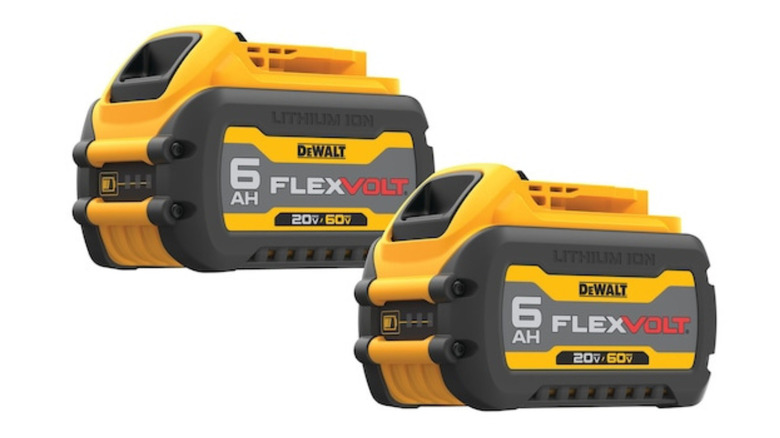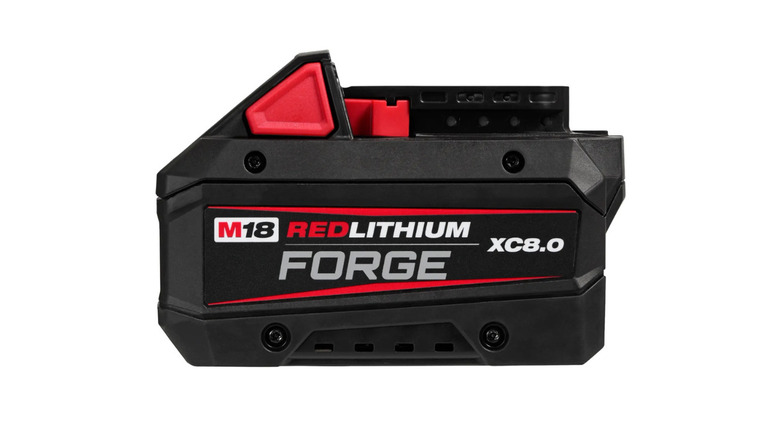DeWalt Vs Milwaukee: How Do These Tool Brands' Power Tool Batteries Differ?
There are many power tool companies on the market, and knowing which one is right for you can be tough. That's especially true when choosing between DeWalt and Milwaukee, two brands that each have a wide selection of tools and accessories. When it comes to each company's batteries, the biggest differences between DeWalt and Milwaukee are their platform structure and voltage capabilities, which are unique to each brand.
DeWalt features the MAX system, with 20V for general 20V tools, 20V XR for tools that require longer runtimes, and 60V for high-power equipment. There are also Flexvolt batteries, which have the added capability of being able to adjust voltage depending on the tool being used. In contrast, Milwaukee utilizes its proprietary Redlithium Forge technology, with the M12 battery for compact tools, M18 for general cordless tools, and MX Fuel for high-demand equipment.
DeWalt also emphasizes flexibility within its tool ecosystem, which lets you mix and match batteries and tools more freely across compatible lines. However, Milwaukee's batteries are tied strictly to their specific platforms, so each battery only works with its corresponding M12, M18, or MX Fuel tools. So if you only need one or two power tools, Milwaukee might be the way to go. But if you're planning on building a collection of tools for a wide variety of jobs, the versatility of DeWalt's battery platform could be the ideal choice.
Similarities between DeWalt and Milwaukee batteries
DeWalt and Milwaukee batteries do share some similarities, as both brands utilize lithium-ion to power their cordless tool lines. Both offer chargers for each platform as well. When it comes to overall design, DeWalt and Milwaukee build their systems to give you quality options delivering consistent performance you can rely on. But when it comes to everyday use, what are the strengths of each brand?
DeWalt batteries are designed with professionals in mind and are built with tough casings to protect them. This makes them a reliable option for professionals who work in tough environments. DeWalt's batteries could last about 2–3 years or 300–500 charge cycles, though results may vary, depending on your working conditions and environment. Milwaukee emphasizes longer runtimes, with batteries designed to handle everything from freezing cold temperatures to blistering summer heat. This is thanks to the battery's internal systems, which manage temperature to help them remain cool, so they don't overheat.
Of course, only proper use and maintenance will ensure high performance and longevity, no matter which brand of battery you're using. Both DeWalt and Milwaukee recommend using only their brands for their respective tools and to always store the batteries in a cool, dry location. You should also fully charge your batteries in a well-ventilated space and don't attempt to repair them yourself, as doing so could result in an injury.

